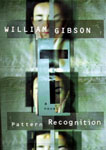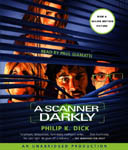
 7th Son Book One: Descent
7th Son Book One: Descent
By J.C. Hutchins; Read by J.C. Hutchins
Podcast Novel – Approx. 16 Hours [UNABRIDGED]
Publisher: J.C. Hutchins; Podiobooks.com
Published: August 2006
Themes: / Science Fiction / Suspense / Crime / Cloning / Conspiracy /
The President of the United States is dead. He was murdered in the morning sunlight by a four-year-old boy.
How does that grab you? These are the first two sentences from the prologue of the podiobook 7th Son, and it just gets better from there. Next, we meet our 7 main characters: John, Michael, Jack, Father Thomas, Jonathan, Dr. Mike, and Kilroy 2.0, as each are taken abruptly away from their individual lives and brought to the 7th Son Facility. They quickly learn that their lives – and their memories – are not as individual as one would think. Each man is a clone, and each had been implanted with the same memories from childhood, using Memory Recording/Installation (MR/I) technology. Each clone has their own personality trait (for instance, one is a priest, another is a Marine, and another is a musician), and though they are clones, their physical appearances do differ slightly.
What they come to discover is they were brought together to help catch the person who assassinated the President. The 7th Son facilitators believe that John Alpha, the source in which all the other clones were created, is behind the assassination. Only they don’t know how, or why. That is where the clones come in. Working together, they discover John Alpha’s whereabouts, at the same time learning more and more about their pasts that never were. The clones also discover they share the same mother, who was taken away by John Alpha. The memories of their mother are the same implanted memories, and they all share them, even though the woman, Danya Sheridan, is quite real and was a memory specialist at the facility.
We find out soon enough this is a conspiracy that goes much deeper than assassinating a President. Experimenting with memory technology also has its downfalls, when in Chapter 8 we learn about NEPTH Charge Technology (Neuro Erasure-Pulsed Technology Hardware), a technology that sends such a shockwave through the brain that every one of your memories are erased. Eventually a way to control that misstep is found, but the implications should the technology fall into the wrong hands are evident.
The very next chapter is an example of this, and is by far my favorite chapter in the book. I remember it very clearly because I cringed for the entire process. For onlookers, I must have looked like I was having some sort of seizure. It is that good of a chapter.
Hutchins captures your attention from the very beginning, and with a smooth voice is able to depict each character in such a way you begin to recognize each clone’s voice as their own. His writing is smart, descriptive, and his ideas are original, with plot twists that will keep you guessing right up until a secret is revealed (and there are quite a few). You’re guaranteed to gasp and talk to your computer or mp3 player while listening. J.C. Hutchins gives Stephen King a run for his money. Now that I think about it, someone should let King know about this podcast novel, if he’s not subscribed all ready, that is.
There are two ways to receive this podcast novel. One is through Podiobooks.com, where you will get nothing other than the chapters of the story, as if you’re listening to an audiobook. The other way is subscribing to the podcast feed directly through Hutchins’ website, which is how I listened. Listening to the book this way is a bit different than just listening to it as a straight audiobook. The set up is a weekly show, with an introduction, a recap of the last chapter, the chapter itself, then closing with voicemails and podcast promotions. A lot of listeners to the podcast listen week-by-week, as you would wait for the next episode of a television show. Each chapter is compelling enough, with just enough cliffhanger to keep you checking your podcatcher for the next chapter to be released. Other listeners, such as myself, joined the “Beta Clone Army” (as the fan-based Myspace group is called) later in the book. I listened to nothing else for a week-and-a-half, then had to wait like everyone else when I caught up. It was frustrating, but in a good way.
Also included in the podcast-show version of the novel is a bonus show, filled with Q&A from listeners, plugs for other podcasts, and acknowledgements. I loved listening to this extra show. Hutchins talks about his inspiration for the 7th Son story, as well as giving in-depth analysis of each clone, and how he created the characters. The hard-core fans will find it very informative, and I personally love to hear where writers get their inspirations for stories.
There is a ton of fan-hype surrounding this podcast novel, and it’s easy to be swept up in it. Whether you listen as a “podiobook” or as the podcast show, 7th Son will captivate your imagination and hold it hostage right up to the end. The writing is strong and easily stands alone, which is why it has the fan base it does. Book two begins September 26th, so there is plenty of time to subscribe to this book and catch up.
posted by Dani


 The Giallo Hotel in Atlantic City, New Jersey, offers fine dining, well appointed rooms, and old fashioned customer service. But while you’re staying there be sure not to ask what the noises coming from the thirteenth floor are. And for the love of God – whatever you do – don’t order the lasagna!
The Giallo Hotel in Atlantic City, New Jersey, offers fine dining, well appointed rooms, and old fashioned customer service. But while you’re staying there be sure not to ask what the noises coming from the thirteenth floor are. And for the love of God – whatever you do – don’t order the lasagna!





 A Scanner Darkly
A Scanner Darkly